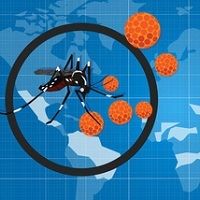Article
Zika: Another Case of Viral Persistence in Semen
Author(s):
Physicians trying to set an all-clear point for would-be parents who have been infected with the Zika virus simply do not know how long abstention from unprotected sex is necessary. In the latest reported case involved the virus' persistence in semen, UK researchers describe a patient whose virus was found 92 days after he got Zika on a trip to Rio De Janeiro

Zika's reputation as a sexually transmitted disease continues to grow. Reporting today in the US Centers for Disease Control and Prevention' Emerging Infectious Diseases, Katherine Gaskell and colleagues at the Hospital for Tropical Diseases in London, UK, and elsewhere described a male patient.
The 45-year-old man became ill with an ailment diagnosed as Zika infection just one day after returning to the UK from a one-week vacation in Rio de Janeiro, Brazil.
Because he and his partner were trying to conceive and did not want to wait a recommended six-month period before having unprotected sex, he got his semen tested at regular intervals. The virus could not be cultured from the samples but was found by PCR testing for virus RNA using real-time reverse transcription PCR.
The researchers said the virus persisted for 92 days after the onset of symptoms.
It was not the longest such interval ever reported, the researchers noted. Others have published accounts of the virus being found in semen in 181 days and 188 days after the patients' first symptoms.
The World Health Organization recommends that people who are infected assume the virus will last at least 180 days.
Accordingly the team noted, "Our findings support recommendations for six month contraceptive use after symptomatic Zika virus infection."
The authors note that "in this case, testing serial semen samples for evidence of Zika virus RNA helped guide patient management and doing this routinely in returning travelers in non-Zika endemic countries might be warranted."
Zika causes symptoms in about 20% of people who are infected. It is a mosquito-transmitted flavivirus and is linked to birth defects in infants whose mothers had the virus during pregnancy.
Sexual transmission has been documented from male to female, female to male, and male to male.
Related Coverage:
2 Commerce Drive
Cranbury, NJ 08512
All rights reserved.





